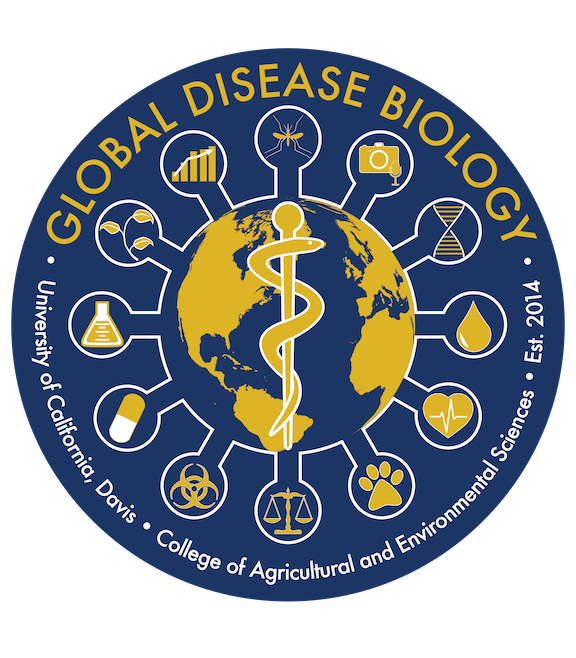
Professor Spotlight, Spring 2023: Woutrina Smith
Dr. Woutrina Smith leads the multi-campus UCGHI Planetary Health Center of Expertise and has been part of the UCD School of Veterinary Medicine’s One Health Institute since its inception. Dr. Smith has One Health research projects in Africa and Asia, as well as in California, where multidisciplinary teams work together to solve complex population and planetary health problems in innovative ways. She teaches the GDB major requirement PMI 129Y: One Health Fundamentals.
How did you choose your field of study?
I didn’t know what I wanted to be when I grew up. I ended up making my career path decisions just one decision at a time… when I committed to do something I wanted to do it well, and I have found that once you establish a reputation has a hard worker and a team player, one opportunity tends to lead to the next. Someone will see the spark and work ethic and potential that you have, and they find a way to help you keep going, to grow into that potential. I try to do that now with my students and research teams… if I see someone with a spark and a positive, strong work ethic, I try harder to make sure they have opportunities to keep growing. When I came to vet school I thought it would be too hard to find a job that let me work with wildlife. But I love wildlife and so I volunteered doing sea otter necropsies while going to vet school, and that turned into sea otter research, and that turned into a wildlife Masters degree, and that turned into a PhD on One Health approaches in the field of infectious disease epidemiology. And now I’m in a job I love, working with wildlife and One Health, and I am grateful for all I learned from the challenges I navigated along the way.
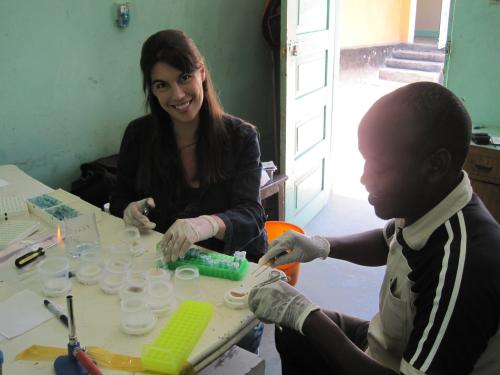
What do you love about teaching at UC Davis?
I love teaching because I’ve realized that people are sometimes limited as much by what we do know as well as what they don’t know. And so some of the smartest people I know are brilliant in some topic areas, but very limited in how they think or grow in other areas. Students may not be experts in any one area, and so they tend to be open to growing in all areas, which is very cool. Many students, once they have realized the power of working in a collaborative team mindset, are empowered to solve problems even if they may not know all the answers themselves, and that can make for a life long love of learning. Your generation may be the one that makes the breakthroughs as to how to solve the emerging problems of the future, and that is how we can save the world.
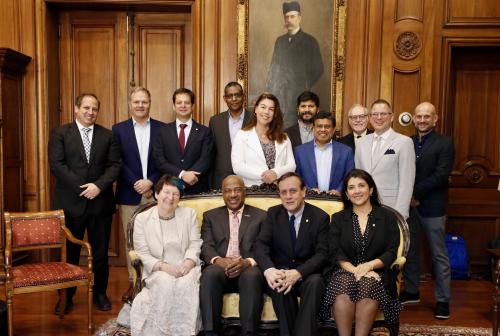
Besides being a professor, what are some outside hobbies that you enjoy?
I love being outdoors. I grew up in Alaska, studied abroad in Australia during college, and now get to travel the world as part of my job. Each place I go, if I have some downtime, I will be looking for the magic and symmetry of nature, the inspiration that the wild world can provide us, and the endorphins that come with stretching your legs in beautiful places.
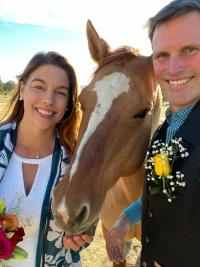
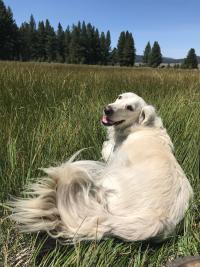
What would students be surprised to find out about you?
That dark chocolate and ketchup could be essential food group? Hmmm… I just asked my kids the question to see what they would say. One piped up right away and said that he still thinks it’s amazing that my mother was born during the war in the Netherlands (1941) and hid Jews in the floors of her family house. To go from being born in wartime, to moving to another country for college and marriage, to raising a family who have careers and kids of their own now… our parents have seen a lot of change, and I suppose that magnitude of change may happen again as we face the climate crisis and growing population needs without a sustainable future in hand. I hope we can all do our part to make little changes that culminate in big changes, to avoid the existential threat that is coming if we don’t come together as a globally networked but locally responsive world population.
